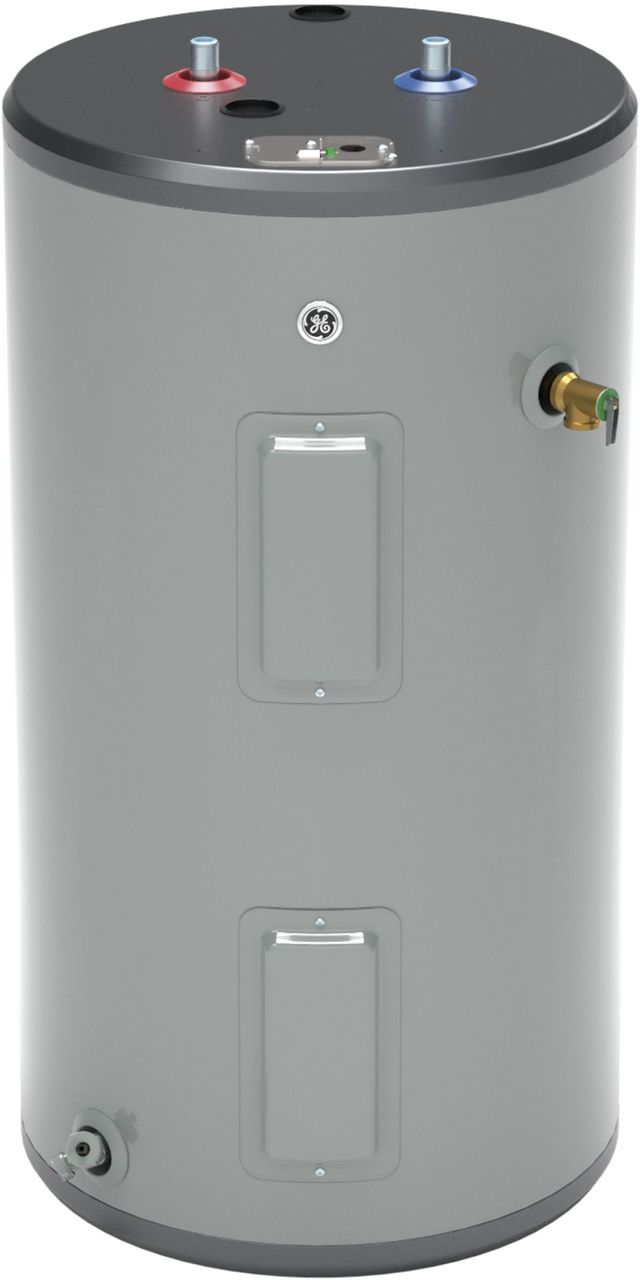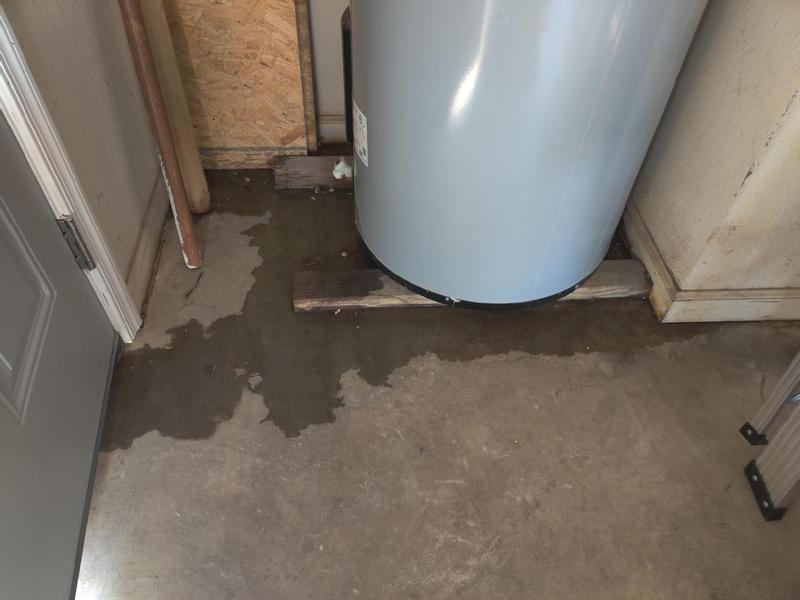Essential Measures Residential Property Owners Should Take When Managing Broken Water Heaters
Essential Measures Residential Property Owners Should Take When Managing Broken Water Heaters
Blog Article
Each person has got their own individual perception with regards to Maintaining & Draining a Water Heater.

Whether it is located in the basement or a different space, broken water heating systems can create tension. Having no hot water supply is additionally problematic.
Turn Off Power Source
Before calling the plumber, shut off a gas water heating system by turning the temperature dial. This will certainly prevent electrocution, especially if there is a leakage as water is a conductor. Typically, the home heating component closes off when the water strikes a specific temperature.
Cut Off the Cold Water Supply
Cut off the storage tanks tap water supply from the resource. This goes from your major water line right into the container. When your container is in good condition, the cold water quits filling up when the tank is complete. But because it is dripping, the water will certainly remain to stream. Shut the valve found at the top of the heating unit. Revolve this clockwise to close it off. If you can not locate it or reach it, you need to shut off that major supply of water line outside your building.
Call the Plumber
After doing the initial two safety steps, you should call your plumber to come right away to deal with a ruptured water heater. There are normally indicators that your aging water heating system has debris buildup in the interior.
Don't await major flooding to call the plumber. By then, you will need to invest even more to recover your home. Rather, as soon as you spot these indicators, have an expert pertained to check your hot water heater thank. Typically, water heaters have a lifespan of concerning 8 to 12 years. With routine inspection as well as upkeep, you can prolong its life.
Clean Up Home
After calling the plumber, document damage by bearing in mind and also photos so you can assert your home owner's insurance policy. From there, start the instant clean-up. Take out any type of vital personal belongings to prevent further saturating. Then, get rid of any standing water to stop mold and also mold growth. Utilize that to drain pipes the water if you have a completely submersible water pump. Or else, the standard container method will certainly additionally work. Attempt to wipe out every little thing, consisting of walls and walls. Maintain them running to keep air flowing if you have an electrical follower and also dehumidifier. This will certainly assist deter mold development.
Remember, if you observe any type of concerns with your hot water heater, call the pros right now. You can not take this issue gently due to the fact that a damaged thermostat can elevate water temperature to a hazardously high level, bring about unexpected burns. A damaged heating system pressure safety valve can also cause an explosion. For best outcomes, obtain a yearly check so your unit obtains evaluated, cleaned, drained pipes, and refilled, guaranteeing ideal performance.
Whether it is located in the cellar or a different area, broken water heaters can create tension. Prior to calling the plumber, closed off a gas water heating system by turning the temperature level dial. After doing the initial two safety and security actions, you should call your plumber to come right away to take care of a burst water heater. If you have a submersible water pump, utilize that to drain pipes the water. Remember, if you notice any issues with your water heater, call the pros right away.
8 REASONS YOUR HOT WATER HEATER IS NOT WORKING & HOW TO FIX
Water Heater Problems & Solutions
Loose or Damaged In-Line Valve
Unlike a water leak near the bottom of your water tank, a water leak on top of your system can be easily fixed. A common cause of water tank leaks includes a loose in-line valve. This is a handle that is located at the top of the water tank that is engineered to activate or deactivate the flow of water. To fix this problem, you will need to secure the nut that holds the ball or in-line valve in its location. If the leak becomes more severe once it is tightened, you will be required to travel to your local hardware store to purchase a new in-line valve for your water heater.
Damaged Pressure Relief Valve
Most types of water heaters are equipped with a pressure relief valve that is engineered to discharge pressure from the water tank when it becomes too high. If this valve on top of your water heater begins to leak, we recommend purchasing a new one online or from your local store. The process of removing and replacing pressure relief valves is not complicated.
No Warm Water
If you have an electric water heater in your home, the most typical cause of a lack of warm water is a broken heating element. Your water heater is equipped with two heating elements that are tasked with heating incoming water in the water tank. Once a heating element begins to malfunction, you will have little to no hot water to use for showering, cleaning, and laundry.
Low Supply of Hot Water
Are you continuously running out of warm water? This issue may be a byproduct of a cracked dip tube. This tube is engineered to push cold water to the base of your water tank to be heated. Once a crack or hole begins to form in the dip tube, the incoming supply of cold water may be released near the top or middle of your tank. As a result, the cold water on top of the tank will be sent to the faucets and showers in your house. This hot water heater problem can only be fixed by replacing the dip tube on your system. Since the process of installing a new dip tube is complex, we recommend calling a certified technician for help.
A low supply of warm water may also be a signal of excess sediment buildup in your water tank. As your water heater reaches the middle of its life cycle, minerals in water including magnesium and calcium will begin to collect at the base of the water tank. As the minerals continue to grow, there will be less room in the water tank to store hot water. To resolve this problem, flush your water heater to remove the excess minerals.
Water is Too Warm or Cold
If the water in your shower feels uncomfortable hot or cold, you can adjust the temperature of your water by changing the settings on your thermostat. Setting the temperature to 120 degrees Fahrenheit may help you save money on your utility bills. This is an excellent temperature to use if you’re worried about scalding or skin irritation. Does this temperature feel too cold? You may also adjust the thermostat to 140 degrees Fahrenheit to make your showers more pleasant. If your hot water heater is not working when you change the temperature, this is an indicator of a broken thermostat. Immediately find a certified plumbing or heating contractor in your area to repair or replace your thermostat.
Low Water Pressure
Low water pressure is not always caused by a malfunctioning water heater. If you live in an older home with smaller water pipes, the flow of water will be restricted prior to reaching our kitchen or bathroom skins. The only way to eliminate this hot water heater problem is to connect new ¾-inch water lines to your system. Another type of problem that may negatively impact your water pressure includes calcium deposits in water pipes.
As magnesium and calcium begin to form in your pipes, the diameter of your water lines will become smaller. As a result, the warm water from your water heater will not be able to travel in an efficient manner to your sinks or appliances. Since the process of replacing water pipes includes removing drywall, an average homeowner that does not have a plumbing license will not be able to fix this hot water heater problem.
https://www.wmhendersoninc.com/blog/8-reasons-your-water-heater-is-not-working-how-to-fix/

I hope you liked our piece on Water Heater Repair. Thanks a ton for taking the time to read our article post. Please set aside a second to share this content if you enjoyed it. Thank you so much for going through it.
Leak? Reach out! Report this page